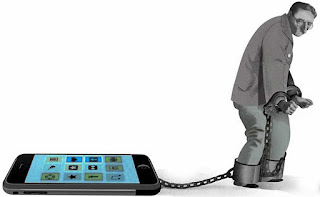Safety Precautions During A Typhoon
The rainy season has officially started and for sure, there would be a lot of people who will be affected primarily those living in low-lying areas who are prone to experience floods. But for the past years, you may have noticed that the kind of storms that we experience was more disastrous. Places which used to be flood-proof have now become affected. Remember the devastation that Typhoon Ondoy has brought us? It was a sad reality that our city has been neglected from keeping it as a clean and safe environment to live in.
The truckloads of trash that have been recovered from Manila Bay and other esteros in Metro Manila reminded us of how so many people just continue to ruin our city regardless of the number of times that they had terrible experiences with the flood. Who should we blame for all these? The inability of the government to clean up all these sites, or the irresponsibility of the people. In reality, we all need to work hand in hand with ensuring that we live in a safe environment. No one needs to pinpoint anyone who maybe is at fault. Let us all help in making our lives comfortable. The change needs to start from within us.
Safety Precautions
During the storm, please take note that even if you think that you are safely home, there are unexpected things that may happen. Here are a few tips to help you and your family safe during this kind of weather conditions:
1. Don't leave the house unless absolutely necessary. Children should be prohibited from playing in the rain or flood to prevent contracting leptospirosis and other water-borne diseases.
2. With persistent strong winds, those outdoors should watch out for flying objects or debris.
3. Do not use gas or electrical appliances that have been flooded.
4. Protect food and water from contaminants by keeping them in sealed containers. Food should be well-cooked.
5. To ensure that water is safe for drinking, boil it for 3 minutes or chlorinate it.
6. Stay away from places that will likely be inundated by rising water or waves such as beaches and riverbanks. Stay away from landslide-prone areas.
7. When evacuation is necessary, switch off your home's main power supply, place appliances and belongings on higher locations and close windows before leaving.
8. Wear warm and dry clothing.
9. Consult a doctor immediately once you or any member of your household shows symptoms of disease to prevent infecting others in the evacuation center. Common diseases or infections that spread in evacuation centers are coughs and colds, acute gastroenteritis, skin and eye infections, measles, dengue, leptospirosis and hepatitis A.
10. Properly dispose of all waste.
11. Wash your hands before and after eating and using the toilet.
12. Stay away from hanging wires and unstable structures (damaged houses, bridges, ports near rough waters, etc.)
13. Avoid using your cellphones while they are charging. Lightning may strike and accidentally directs to your electrical wirings.
14. Similarly, plug off all your electrical appliances. The fluctuation of electricity is apparent during this weather. The sudden surge of electricity may cause damage to your refrigerator, television, and other home appliances.
15. Use a battery-operated radio, instead when monitoring the storm’s progress. Listen intently about storm warnings and advisories.
16. Stay clear from glass windows since strong winds can cause glass windows to shatter.
17. Use rubber boots and gloves for added protection.
A friendly reminder from your AVision Philippines family.






Comments
Post a Comment